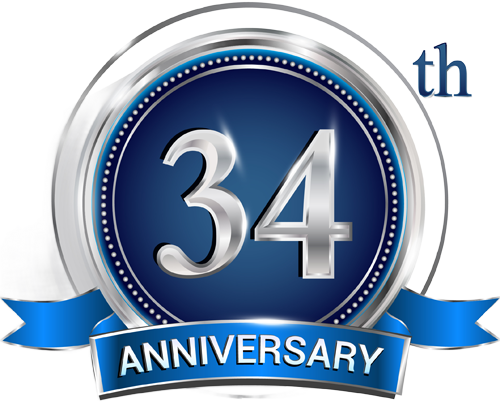Preparation Strategies for College Fairs
High School Students and Parents!
Please Register to be notified of upcoming college fairs and news based on the location, major, and area of study of the college or university you wish to attend.
Navigating the College Fair: A Comprehensive Guide for High School Students

Discover key strategies for high school students to effectively prepare for college fairs. Learn what questions to ask, what materials to bring, and how to make a lasting impression on college representatives.
The transition from high school to college marks a significant milestone in a student's life, laden with anticipations, aspirations, and a fair share of anxiety. Preparing for a college fair can significantly ease this transition, providing students with a golden opportunity to gather valuable information, ask pivotal questions, and make informed decisions about their future educational and career trajectories. Here's what high school students should know as they gear up for this event.
Attending a college fair is akin to embarking on an exploratory mission where the foremost goal is to gather intelligence – knowledge that will empower you to make choices that are the right fit for your post-secondary journey. To begin with, prior research is indispensable. Students should arrive at the fair with a clear understanding of which colleges they're interested in, whether for their academic programs, cultural environment, or geographical location. Before stepping into the bustling environment of the fair, a reflection on personal and academic goals can provide a focused lens through which to view the event.
When preparing for the fair, it behooves students to create a list of colleges they are interested in. This does not bind them to a predetermined path, but provides structure and ensures that time is spent efficiently. They should prioritize the schools of interest but also remain open to discovering new options, as a college fair is a treasure trove of possibilities.
As for questions, students should delve deeper than just the surface-level details that are readily available on college websites. They should inquire about things such as the average class size, the availability of financial aid and scholarships, details about their programs of interest, student retention rates, and what support services the college offers to ensure student success. Cultivating an understanding of the campus culture is also crucial; hence, asking about student life, clubs, organizations, and the overall campus environment can yield insights into what life outside the classroom might look like.
When it arrives at the fair, a professional demeanor and a methodical approach can make all the difference. Dressing smartly can help a student feel confident and make a positive impression. Equipped with a notepad or digital device for taking notes, a folder to organize collected materials, and a small bag for any brochures or giveaways, the student is ready to navigate the fair efficiently.
The art of conversation is key in this setting. Students should approach the representatives with a firm handshake, introduce themselves with poise, and engage in meaningful dialogues about the programs and student life at their institutions. They should share their interests and ask clarifying questions based on the responses given. Active listening: The transition from high school to college marks a significant milestone in a student's life, laden with anticipations, aspirations, and a fair share of anxiety. Preparing for a college fair can significantly ease this transition, providing students with a golden opportunity to gather valuable information, ask pivotal questions, and make informed decisions about their future educational and career trajectories. Here's what high school students should know as they gear up for this event.
Attending a college fair is akin to embarking on an exploratory mission where the foremost goal is to gather intelligence – knowledge that will empower you to make choices that are the right fit for your post-secondary journey. To begin with, prior research is indispensable. Students should arrive at the fair with a clear understanding of which colleges they're interested in, whether for their academic programs, cultural environment, or geographical location. Before stepping into the bustling environment of the fair, a reflection on personal and academic goals can provide a focused lens through which to view the event.
When preparing for the fair, it behooves students to create a list of colleges they are interested in. This does not bind them to a predetermined path, but provides structure and ensures that time is spent efficiently. They should prioritize the schools of interest but also remain open to discovering new options, as a college fair is a treasure trove of possibilities.
As for questions, students should delve deeper than just the surface-level details that are readily available on college websites. They should inquire about things such as the average class size, the availability of financial aid and scholarships, details about their programs of interest, student retention rates, and what support services the college offers to ensure student success. Cultivating an understanding of the campus culture is also crucial; hence, asking about student life, clubs, organizations, and the overall campus environment can yield insights into what life outside the classroom might look like.
When it arrives at the fair, a professional demeanor and a methodical approach can make all the difference. Dressing smartly can help a student feel confident and make a positive impression. Equipped with a notepad or digital device for taking notes, a folder to organize collected materials, and a small bag for any brochures or giveaways, the student is ready to navigate the fair efficiently.
The art of conversation is key in this setting. Students should approach the representatives with a firm handshake, introduce themselves with poise, and engage in meaningful dialogues about the programs and student life at their institutions. They should share their interests and ask clarifying questions based on the responses given. Active listening is paramount in these exchanges; it not only shows respect but also aids in retaining the information discussed.
College fairs often come with a host of workshops or seminars that take place concurrently. These sessions might address topics like how to write a compelling personal statement, ways to navigate the financial aid landscape, or effective strategies for standardized test preparation. It's beneficial to identify and attend these workshops, as they can often provide a roadmap for the nitty-gritty details of college admissions processes and preparations.
An often overlooked aspect of college fairs is the networking opportunity they present. Networking is not just for business professionals – it holds immense value for students, too. They can meet with admissions counselors and establish contacts that may be helpful throughout the application process. A polite, concise email thanking these representatives for their time and assistance can go a long way in cultivating professional relationships that stand out in a deluge of faceless applications.
While students should come to the fair prepared, they should also come with a mindset to learn and adapt. Discovery is part of the process, and being too rigid in their approach can result in missed opportunities. They should keep an open mind, listen actively, and be willing to consider all the information and perspectives gathered. After all, what resonates with a student during a college fair conversation may prove to be a pivot point in their decision-making process.
Throughout the fair, efficiency is also key. With so many possible colleges to explore, students should consider spending a set amount of time at each booth of interest to maximize their exposure to different schools. However, this doesn't mean they should rush conversations or gloss over details. It's a balancing act that requires attentiveness to both the individual interaction and the broader scope of the fair.
Once the college fair concludes, the preparation for college continues, as students should reflect on the information gleaned and determine their next steps. Organizing literature and notes taken during the fair is crucial. Students might rank programs and colleges based on the new insight obtained and follow up on action items such as visiting campuses, applying for scholarships, or reaching out to new contacts.
Ultimately, college fairs offer a unique opportunity for students to take an active role in shaping their future educational experiences. High school students preparing for a college fair should do so with thorough research, an arsenal of targeted questions, appropriate materials for note-taking and organizing information, and a communicative, open-minded disposition. This proactive preparation, coupled with the diligent follow-up, sets the bedrock for making knowledgeable, confident decisions about college—and, by extension, is paramount in these exchanges; it not only shows respect but also aids in retaining the information discussed.
College fairs often come with a host of workshops or seminars that take place concurrently. These sessions might address topics like how to write a compelling personal statement, ways to navigate the financial aid landscape, or effective strategies for standardized test preparation. It's beneficial to identify and attend these workshops, as they can often provide a roadmap for the nitty-gritty details of college admissions processes and preparations.
An often overlooked aspect of college fairs is the networking opportunity they present. Networking is not just for business professionals – it holds immense value for students, too. They can meet with admissions counselors and establish contacts that may be helpful throughout the application process. A polite, concise email thanking these representatives for their time and assistance can go a long way in cultivating professional relationships that stand out in a deluge of faceless applications.
While students should come to the fair prepared, they should also come with a mindset to learn and adapt. Discovery is part of the process, and being too rigid in their approach can result in missed opportunities. They should keep an open mind, listen actively, and be willing to consider all the information and perspectives gathered. After all, what resonates with a student during a college fair conversation may prove to be a pivot point in their decision-making process.
Throughout the fair, efficiency is also key. With so many possible colleges to explore, students should consider spending a set amount of time at each booth of interest to maximize their exposure to different schools. However, this doesn't mean they should rush conversations or gloss over details. It's a balancing act that requires attentiveness to both the individual interaction and the broader scope of the fair.
Once the college fair concludes, the preparation for college continues, as students should reflect on the information gleaned and determine their next steps. Organizing literature and notes taken during the fair is crucial. Students might rank programs and colleges based on the new insight obtained and follow up on action items such as visiting campuses, applying for scholarships, or reaching out to new contacts.
Ultimately, college fairs offer a unique opportunity for students to take an active role in shaping their future educational experiences. High school students preparing for a college fair should do so with thorough research, an arsenal of targeted questions, appropriate materials for note-taking and organizing information, and a communicative, open-minded disposition. This proactive preparation, coupled with the diligent follow-up, sets the bedrock for making knowledgeable, confident decisions about college—and, by extension, their professional trajectory. With a wealth of information at their fingertips, a college fair is not just a stepping stone but a significant leap toward their future success.















